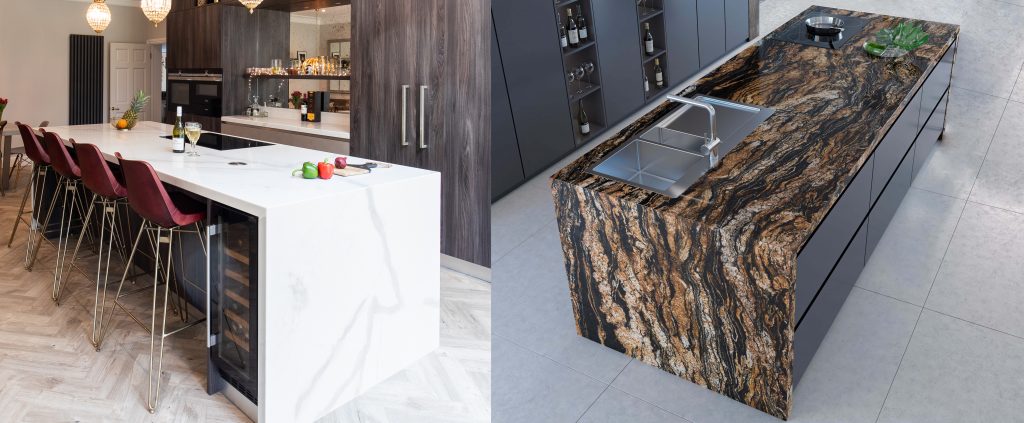
Here at Königstone, we offer both Natural and Quartz surfaces. We have recently seen a rise in the popularity of natural stone surfaces such as Granite and Quartzite and as these beautiful and unique materials are part of our roots we’re delighted to be using them more frequently again. Quartz is however still the go-to surface for many, so what are the main differences?
Visual characteristics
In the last decade the look of Quartz surfaces has dramatically improved, successfully replicating the aesthetics of natural marble and granite. As Quartz is an engineered man-made surface, the visual characteristics and colouring is very consistent, with slight shade variations between different batches the only consideration.
Natural materials such as Granite and Quartzite are formed underground and extracted in blocks which are then processed into slabs. Each slab is completely unique. Some colours are more consistent, with only small variations from quarry to quarry, but others have big variations from slab to slab. Please consider this when choosing natural stone from samples; we always recommend to see slab images or even better, view a natural stone slab in person.
Flexibility of Design
The strength of a Quartz worktop enables designers to utilise it in a variety of different applications whereas with natural stone, each colour varies in strength due to their different composition.
Quartz surfaces are made of around 93% crushed quartz, bonded together with polyester resin and colouring. It is stronger than granite surfaces, generally about 15% harder and five times stronger. KönigQuartz slab sizes are 3200mm x 1600mm meaning that worktops are achievable with minimal joints. Often more joints are required when specifying natural stone, for example long runs with large cut outs that are easily achievable in Quartz will almost always require extra joints when produced in Granite or Quartzite.
Porosity
Quartz is manufactured to be virtually non-porous so has high stain resistance and is very easy to maintain. All natural stone is porous but to enhance its protection we apply a “once only” anti-stain treatment. Even after treatment however, natural stone does have more openness compared to the completely smooth surface of an engineered surface like Quartz.
Images feature KonigQuartz Calacatta and KonigNaturals Aphrodite
